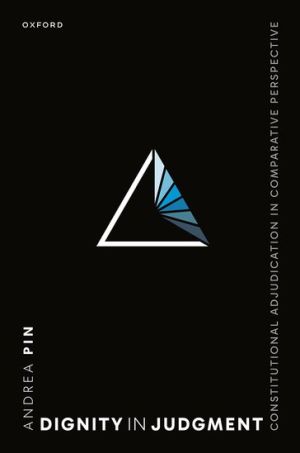
Dignity is a complex philosophical, theological, and constitutional concept. Courts have often progressively distanced the notion of dignity in constitutional law from its religious connotation to emphasize individual autonomy and self-determination. This process has made the notion of dignity less ambiguous, but narrower and more controversial.
Dignity in Judgment: Constitutional Adjudication in Comparative Perspective compares how the apex courts of Canada, Colombia, Egypt, the EU, and Israel operationalize the concept of dignity in their case law. While these countries share an Abrahamic faith and secularization tendencies, these legal systems host a plurality of societal values, and their courts have the reputation of having an activist approach to adjudication. This book offers an in depth-analysis of key decisions that reflect or use the concept of dignity, including capital punishment, antiterrorism measures, biotechnologies, and same-sex relations to build a model of human dignity that facilitates mutual understandings among and within legal traditions. It shows how religious and secular understandings of dignity have shaped its interpretation through the decades.
Insightful and thought-provoking, Dignity in Judgment explores the concept of dignity as it appears in the law by uncovering its character across different legal cultures and religious contexts.